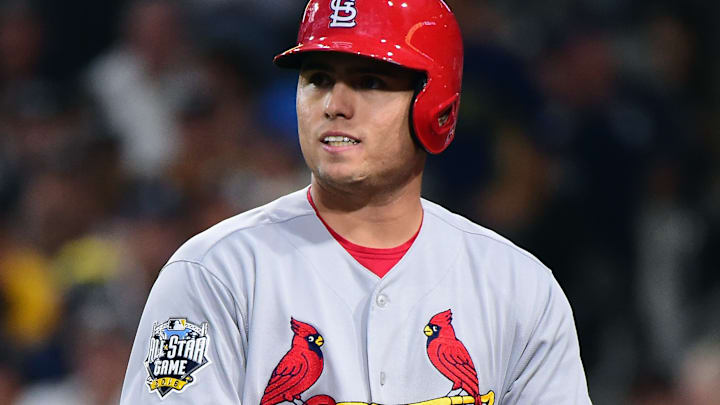Albert Pujols - 2001
When Albert Pujols made the All-Star team in his rookie season, he was the first Cardinal to do so in 46 years and the first position player in 52 years. After being drafted by St.Louis in the 13th round in 1999, Pujols slugged his way through the minor leagues, and literally hit his way onto the team in 2001, and the rest is history.
Spending most of his time at 3rd base in 2001 just to get his bat into the lineup, Pujols had a .323/.391/.594 slash line with 21 home runs and 66 RBI in the first half of the season, and he earned his way to the All-Star game, which was played in Seattle that year.
In the All-Star Game, Pujols replaced Chipper Jones at 3rd base, and in his only AB, he drew a walk against Jeff Nelson, then finished the game at 2nd base. "The Machine" would not be a stranger to going to the All-Star Game, he would be an All-Star 10 more times in his career spanning across 20 seasons (2003-2022). His final numbers in 2001 were nothing short of elite, he hit .329 with 37 home runs and 130 RBI, he won his first of 6 silver sluggers, and he finished 4th in MVP voting which began a stretch of 6 straight seasons, and 10 of 11 seasons where he would finish top 5 in the MVP voting.
Pujols would also win the National League Rookie of the Year in 2001, receiving all 32 first-place votes, becoming the first unanimous Rookie of the Year winner since Nomar Garciaparra with the Red Sox, and Scott Rolen, another member of the MV3 along with Pujols, with the Phillies, both in 1997.
